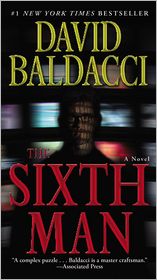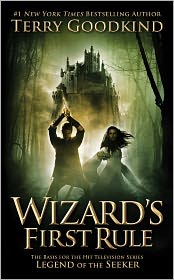She was crying for days on end. She had lost the one she loved; her one and only beloved. Since the day he died her whole world has started falling apart, her life has lost every meaning. Her restless mind and her embittered soul couldn’t really comprehend the awful truth that she now had to live with. Why did he have die? How could he do that to her? It was unfair, it was painful, and it was wrong; so wrong.
Before she met him she used to say to her friends and close family that what she really needed was somebody to love! Yes, she needed someone and she repeated it monotonously just like that old Queen favourite: “I need, somebody to love. I need, somebody to love. Somebody, somebody, somebody to love…”
It was not long before she found that special one and from that day on her life became more colorful, her being acquired essence. He was exactly what she hoped for; tender, caring and sweet, and always willing to listen to what she had to say. In a word he was perfect. Johnny was. From day one he made her feel happy; she was always with a smile on her face when sitting next to him. Just his being there made her feel like a princess in an imaginary kingdom, where she had everything she wished for, but most importantly: “Somebody, somebody, somebody to love…”
During their, alas, brief time together they’ve managed to live a lot of beautiful moments; moments of happiness and serenity, of beauty and true love. Martha thought that nothing, absolutely nothing, could ever separate them; that they were made for each other. For her, having Johnny by her side meant, that she’d never be in pain again, never ever shed a tear of sorrow.
At nights, when he was asleep she used to lie awake for the longest of times just staring at him. He looked so beautiful, so little, so weak, just like a child, her child. But of course a child he was not, he was her beloved; the one she always dreamed of. So when he suddenly and quite unexpectedly died she felt like losing the world beneath her feet. “At least he didn’t have to suffer for long,” she told herself. He got sick and died at almost no time at all; as if his life was but a little candle blown off by an invisible whisper of the wind.
There were not many people at the funeral. Just a few close friends and her family. It was as if he did not ever exist in the eyes of other people. As if his life and death were of no importance. Martha cried and cried, like an old widow, for many days, non-stop. She had lost her beloved. How could she ever get over a pain that, like a furious fire, consumed her soul?
“I need, somebody to love. I need, somebody to love. Somebody, somebody, somebody to love…” she started thinking and grievously singing once more, but where could she ever find again someone like him, someone who loved her for who she really was?
As time passed and she wouldn’t stop crying, all the people close to her, or most of them anyway, started feeling pretty nervous, even furious at times, when she was around. Her endless weeping, the pain and the tears that were always streaming wildly out of her eyes and over her smooth pale face, were more than they could handle. For how long? For how long, would her heart belong to yesterday? And when would she at last manage to understand that life does not begin and end at a person? And when would she start smiling again? That’s what her parents wondered; but not for a single moment did they stop hoping that time would eventually heal the wounds. But it didn’t. Day after day Martha seemed more resigned from life, free of hope and joy. Their lovely daughter now looked like she was falling apart. And they knew that there could be but one solution to her problems; she had to find somebody to love. So, after they discussed the whole matter thoroughly between them and reached a decision, the poor and desperate mother - who was on the verge of a nervous breakdown - headed for the girl’s room to break the good news to her. But when she found her crying and raving like crazy she just couldn’t take it anymore; she exploded; but that explosion sounded like sweet music at her daughter’s ears. “Martha, listen to me. Listen to me, Martha. Marthaaaaaaaaaaa, shut the fuck up. Shut up! We’re going to buy you another hamster!” On hearing the good news the little girl lifted her cute and teary head from the pillows and gave her mother the sweetest of smiles, an angel-like one. Oh yeah, at long last, she would once again have, somebody to love. “I’ll have, somebody to love. I’ll have, somebody to love. Somebody, somebody, somebody to love…”
Image taken from here










